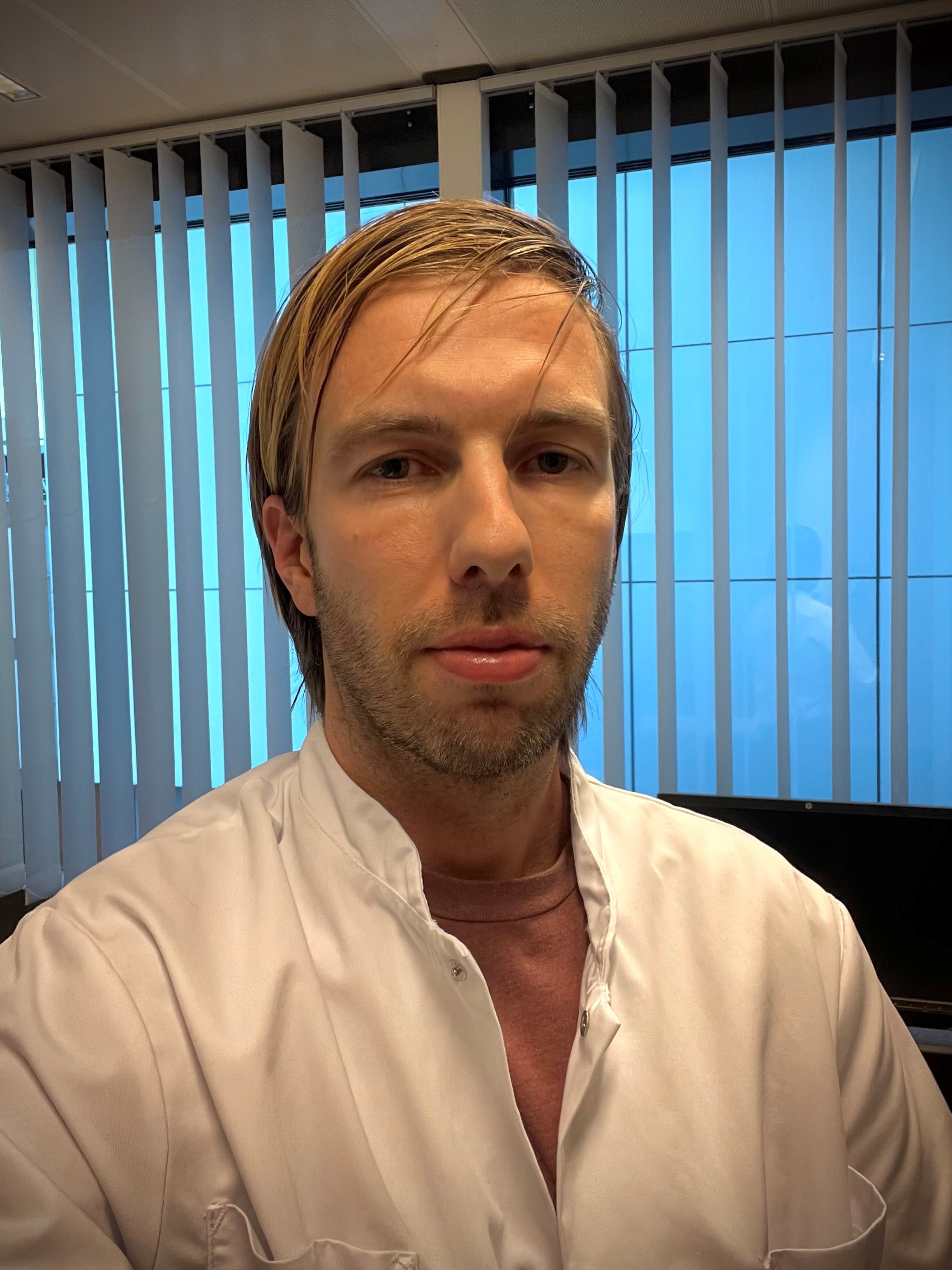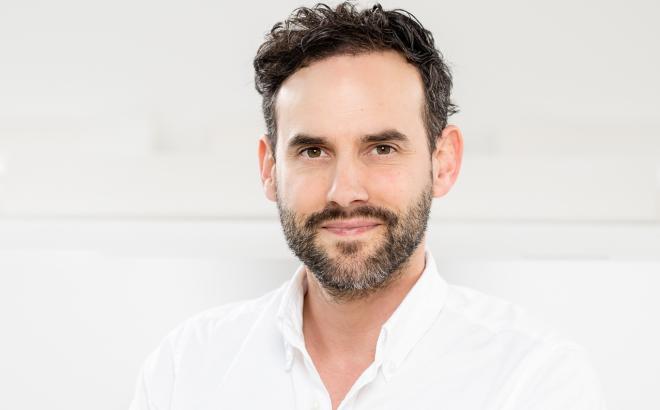Gábor Rosta, Urologist
We have a duty to provide care – today and in the future
We have a duty to provide care – today and in the future
Dr Gábor Rosta is a senior physician at the Division of Urology and Andrology at the University Hospital of St. Pölten. A dedicated medical professional, Rosta is working intensively to make the da Vinci Surgical System part of standard practice.
“Prostate carcinoma is the most common malignant disease among men in Austria. Our aim is to offer our patients the best treatment currently available. We see ourselves as a preventive service provider and, in this role, hope to cooperate with hospitals across the region to offer the best possible service to everyone in Lower Austria,” says Rosta. By establishing the use of fusion biopsy, which makes it possible to remove suspected tumour tissue from the prostate with the utmost precision, the team in the Urology division has already made an important contribution to patient care in Lower Austria. At the same time, Rosta sees clinical research as a high priority. “As a university hospital, we have a clear duty to provide care – today and in the future. Our research is population-led in an effort to develop better diagnostic and treatment methods for as many patients as possible.”
When he began studying medicine at the University of Szeged in Hungary, Gábor Rosta did not envision a career in scientific research. During his time at university, however, he spent a period as a research assistant at the Methodist DeBakey Heart & Vascular Center in Houston, Texas, which included working on joint projects with NASA. “Up until then, I hadn’t been interested in research. This was very intensive work and helped to develop the passion for research I have today. While in Houston, I learned to follow a solution-focused, evidence-based approach. That’s stayed with me to this day,” says Rosta, recalling his time abroad. Upon his return to Szeged, the budding doctor wrote his final thesis on the topic of vascular surgery. Rosta then moved to the USA and embarked on an internship in Buffalo, New York. He returned to Europe in 2016 and continued his training at the Charité in Berlin. During his time in the German capital, he expanded his focus from vascular medicine to include urology. “While vascular surgery primarily involves damage limitation when dealing with damaged blood vessels, in urology I deal with patients aged 0 to 100. The clientèle ranges from small children to young adults and elderly people. It’s wonderful that, in many cases, our patients make a complete recovery,” reports Rosta. So, what exactly attracted him to his current speciality? “I was immediately fascinated by the varied nature of urology,” he says. “So, I applied for positions in both vascular surgery and urology departments.” On his return journey from Germany to Hungary, Rosta – by then an assistant physician – visited St. Pölten and applied to the University Hospital. The chief physician, Eckart Breinl, was immediately impressed by the young doctor and offered him a position. “I was very taken with Breinl’s spontaneous decision, so I agreed right away,” remembers Rosta, who has worked at the University Hospital of St. Pölten since 2016. As soon as he completed his basic training, he took up a position in the Division of Urology and Andrology led by Dr Eckart Breinl.
Today, Rosta is a senior physician and specialises in oncological urology. “Thanks to the specialist outpatient prostate clinic we set up in 2021, we see a lot of patients and have already performed over 1,000 fusion biopsies. This patient pool provides the sample size we need to examine research questions and achieve meaningful results,” explains Rosta. Support from the Forschungsimpulse funding programme enabled him to conduct a project on the use of high-intensity focused ultrasound (HIFU) for the treatment of localised prostate carcinoma. “We’ve been using this method for two years now,” he says. “In the future, we’ll concentrate on achieving the earliest possible diagnosis and establishing less invasive, ultra-precise, individualised treatments. Not all patients require a radical prostatectomy, which can lead to reduced quality of life.” The urologist still has a host of ideas for the future, all of which follow a single, over-arching goal: “Despite significant challenges, we have considerable resources available to us here in St. Pölten. Interdepartmental collaboration is excellent and we have a duty to our patients to use all the resources at our disposal and provide them with world-leading treatment.” Plans for further research projects are already underway, such as a study on androgens in partnership with Technopol Tulln and the establishment of a register for real-life data. Dr Rosta and his team also support students at KL. “As up-and-coming doctors, they are the future of our division and our hospital, so their training is a topic close to our hearts,” says Rosta, who has been impressed by KL students’ dedication. “We can see they are highly motivated, willing to learn and keenly interested in research.” Before the passionate researcher can throw himself into the projects that lie ahead, however, he will complete a three-month fellowship at the Netherlands Cancer Institute (NKI) in Amsterdam in early 2024. “I’m already hugely looking forward to engaging with my colleagues there. They have extensive expertise in robot-assisted surgery and my goal is to bring as much as possible back with me to St. Pölten. This fellowship also increases the likelihood that we can work together more closely in the future, learning and benefiting from each other,” says Dr Rosta, outlining his hopes for the challenge ahead.

Dr. Gabor Rosta
Division of Urology and Andrology (University Hospital St. Pölten)




